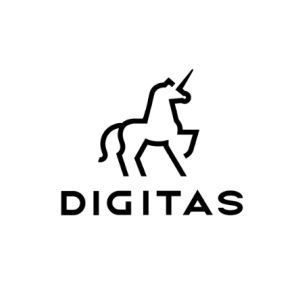
Orchestration Is the New Battleground

- Photo credit // Mark Williams on unsplash
What a wild ride 2020 has been, as we've seen digital transformation take place nearly overnight. As we look towards what 2021 might have in store, the need for orchestrated marketing is becoming more and more prevalent. The term 'orchestration' has been a buzzword for several years now, but it's been overused to the point where it's lost all context. Just like anything else, something old deserves the chance to become new again, or at least re-invent itself.
We recently conducted a survey across a variety of capabilities (e.g., technology, marketing, creative, data, etc.) to gauge the level of understanding around orchestration and help put further context to the term. We found a few key observations:
- Orchestration has a different meaning depending on the department or capability you work in
- Associations to orchestration are split between technical orchestration and strategic orchestration
- Most orchestration references relate to the digital ecosystem with little acknowledgement to any offline engagements
- The term orchestration was most closely associated to 'experience' followed by 'channel'
- Orchestration has a mystique surrounding it, cited as a 'superpower that creates magic'
While the responses were all over the board, one thing was certain - nearly 80% of respondents said that orchestration was very important to their jobs. But even though it was deemed important, the viewpoints of orchestration were so varied that we wanted to set the stage for what orchestration actually means.
What is Orchestration?
According to Dictionary.com, orchestration is "to arrange or manipulate, especially by means of clever or thorough planning or maneuvering". It is often used synonymously with symphony, symmetry, coherence, unity. When you apply that definition to the digital world, the word takes on new context:
- Channel Orchestration: the delivery of relevant, timely content that works in concert across online and offline channels to engage audiences
- Data Orchestration: collection and modelling of customer-level data from a variety of online and offline sources to fuel customer experience technology platforms
- Marketing Orchestration: approach that leverages unified intelligence to power more relevant and personalised customer experiences in real-time across all departments
- Customer Journey Orchestration: automation of individual customer journeys based on previous behaviour, preferences, and collected data to tailor the right experience in the pivotal moments in a customer journey
- Operational Orchestration: coordination of people, process, and technology to achieve a desired outcome that drives greater business impact
To us, orchestration means all of those things and more. We call it Experience Orchestration - the creation of individualised experiences that take into account unique customer needs and desires in the context of the customer's lifecycle, automatically serving up the next best action across a brand's ecosystem, that can be activated in real-time.
Orchestration is the white space in your MarTech stack that spans data, intelligence, experiences, and measurement. It requires the entire stack to work in concert together in order to enable new levels of connectivity between brands and their consumers, intelligence to derive actionable insights, and technology that activates customer experience efforts.
In a nutshell, experience orchestration is a set of connected capabilities that span data, tech, analytics, fuelled by customer strategy, and operationalised by people and process.
Why is Orchestration the new battleground?
According to Microsoft's CEO Satya Nadella and CFO Amy Hood: "The competitiveness of every business going forward will be defined by their ability able to harness the full value of their data."
Orchestration is at the heart of realising the full economic benefit of data. But let's be honest, orchestration of anything is difficult. It becomes more pronounced with a higher level of business complexity and the sheer amount of data being collected. But the payoff will be worth it - there are two primary benefits of focusing on Experience Orchestration that can be recognised immediately:
1) Business: It results in better work, and better work is more effective at driving and achieving business goals
2) Operational: It creates efficiency in the form of reducing duplication, preventing missed opportunities, and removing friction
Just like our survey revealed, orchestration is in fact a superpower. Doing it well will help brands win the war for customer attention and brand love by providing a superior customer experience. Wondering how to get started with orchestration? Hint: a powerful CRM + CX vision is the anchor to your orchestration strategy.
- Melissa Berger, SVP, connections strategy and Michelle Thomas, VP, connections strategy at Digitas













